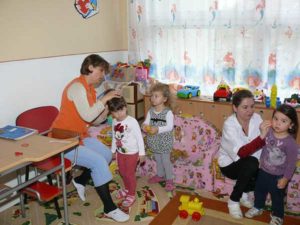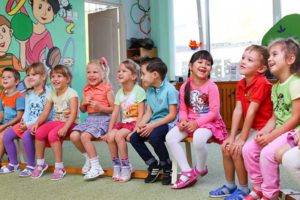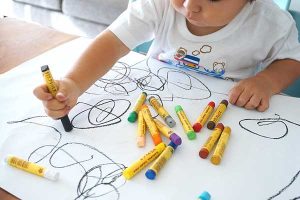May is National Foster Care Month. This month is set aside to recognize the individuals and families who give their time, their resources and their homes to children who are going through the most difficult times of their life.
Foster Parents

Most people would have a difficult time letting a stranger in their home to shower, sleep and eat. It would be the equivalent of picking up a homeless person and taking them home. You know nothing about this person except what you can see and perhaps what they have told you.
For foster parents, the person is a child. This child may have severe mental or physical trauma that is not apparent to the naked eye. Emotional damage may be hidden under layers of disdain, hatred and aloofness. Now imagine that you open your home, your family and your heart to this child. Is that hard to imagine? That is what foster families do every day. It is all about placing your fears and doubts aside to meet the needs of a child who has nobody else to turn to.
National Foster Care Month
May is the time to bring awareness to foster care. Foster parents are honored during this month. The need for more families to volunteer is brought to the forefront of the public eye. The needs of the foster care families are recognized. Resources are introduced to help meet the needs. After all, foster care is more than just opening your home up to a child in need. Foster care awareness is critical to help families and communities meet the needs of the children and the families that care for them.
Where to Find Help
Many people caring for children do not know that there are resources available to help them. Respite babysitting services, community clothing closets, support groups and even activities and sports programs for the children are all in place to help families foster these children. However, the problem is that not all families know about the resources available. During May, resources of all kinds are brought to the forefront in an attempt to help families caring for foster children.
Grandparents, aunts and uncles are often kinship caregivers. This means that they have assumed the role of caregiver since the parents of the child are not an option. Often, this causes a change in family dynamics. An adult child may resent the grandparent becoming the primary caregiver of their child. Maybe a grandparent does not know what to do about things like medical care, legal issues with the school, etc. Resources like
The Grandkin Guide can help grandparents to navigate the legal system, family issues and the new role of caregiver.
Such resources are critical to helping foster care families cope with the changes that come from having a new child in the home. Online resources, support groups, financial aid and more can all be beneficial for the care of foster children. Whether kinship care is decided between family members or set up by child welfare services, there is no reason to feel alone and adrift in this new circumstance. Help is available.
Why is Public Awareness so Important?

Foster care is often shown in a negative light. News stories of tragedies, rumors of greed and horror stories from former foster children get the spotlight, while great foster successes go unheralded.
Care of these children must be brought to the public in a positive light. People will remember success stories of foster children who went on to college and beyond. Foster parents who go above and beyond to help children find their passions, like painting or horseback riding, should be highlighted and commended. The children should have their success stories shared, just like in a traditional family. These children can thrive if the parents have the resources available to help them. Even severe mental and physical abuse of the past can be overcome with love and support from foster parents who really care.
Foster care takes a whole community to be successful. Outreach groups, support groups, legal and financial help, respite caregivers, teachers, child welfare advocates – everyone must work hand-in-hand with the foster caregivers to ensure these children are protected, loved and given the chance for a successful, happy life.
Use May as the month to educate yourself about the foster care system and how you and your community can help these families. A community picnic, a toy or clothing drive, volunteering your time or even offering your talents (like free piano lessons) – there are plenty of ways you can help with foster care. The keyword is ‘care’.




 Kidney failure is a slow and progressive disease that usually has no noticeable symptoms. Kidney disease awareness is important. Unless your kidneys have been injured in an accident, you may not know you have kidney disease without medical testing. Your doctor can perform a few types of tests to determine kidney function. These are usually blood tests or urine tests.
Kidney failure is a slow and progressive disease that usually has no noticeable symptoms. Kidney disease awareness is important. Unless your kidneys have been injured in an accident, you may not know you have kidney disease without medical testing. Your doctor can perform a few types of tests to determine kidney function. These are usually blood tests or urine tests. Your kidneys are responsible for getting toxic substances out of your blood stream. Alcohol is highly toxic to the body, so your kidneys work extra hard to get rid of it. When you drink too much, you put strain on your kidneys and may damage them.
Your kidneys are responsible for getting toxic substances out of your blood stream. Alcohol is highly toxic to the body, so your kidneys work extra hard to get rid of it. When you drink too much, you put strain on your kidneys and may damage them. Good fine motor skills are a necessity, because your children will be doing these daily throughout their school years and beyond. They are the foundation for your child’s ability to take part in classwork and other daily activities. Some of the most important ones you should work on with your child are:
Good fine motor skills are a necessity, because your children will be doing these daily throughout their school years and beyond. They are the foundation for your child’s ability to take part in classwork and other daily activities. Some of the most important ones you should work on with your child are: Gross motor skills are important for physical development, play, and coordination. Of course, exceptions will be made if your child is physically handicapped. Before heading off to school, your child should be comfortable with:
Gross motor skills are important for physical development, play, and coordination. Of course, exceptions will be made if your child is physically handicapped. Before heading off to school, your child should be comfortable with: